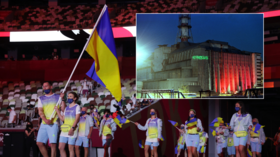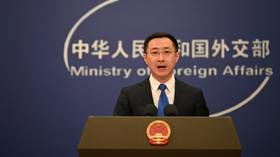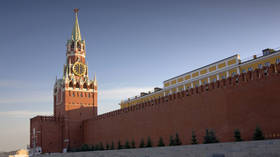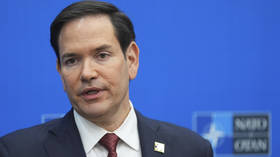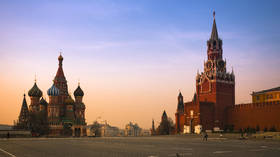From the whining over Russians winning medals to transgender weightlifting – the Tokyo 2020 Olympics have taught us much
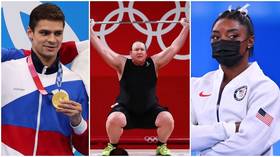
After two weeks, 33 sports, and around 11,000 athletes doing battle for 339 gold medals, the curtain is coming down on the Tokyo 2020 Olympics.
These will forever be known as the ‘Pandemic Games’, played out in the shadow of Covid one year later than planned.
Better late than never, some might say; others would argue these were the Games that never should have happened at all.
But go ahead they did, and in the end, Tokyo 2020 revealed the good, the bad and the ugly that invariably accompanies any edition of this quadrennial summer spectacular.
Here, we look back at some of the things we learned from Tokyo 2020 – it’s perhaps more than you realized…
LOCALS AND ORGANIZERS WILL BE RELIEVED THEY ARE OVER
To say the Tokyo Games were controversial would be putting it lightly.
Poll after poll had shown public sentiment in Japan was strongly against them going ahead – this summer, or any other summer, for that matter.
With Tokyo in a state of Covid emergency, thousands upon thousands of athletes, support staff, media, and assorted dignitaries would be descending on Japan, potentially bringing that nasty virus with them.
“Why take the risk?” the locals screamed.
Money, quite frankly, seemed the most obvious reason.
Japan officially sank $15.4 billion into hosting these Games, but other estimates put the amount at well over $20 billion.
That’s a mammoth investment just to go to waste.
Then there was the International Olympic Committee (IOC), which is dependent on billion-dollar income from broadcasters, primarily in North America.
Scrapping the Games would be ruinous for the organization which runs them.
The Games, then, were always going to go ahead – but even without the whole Covid thing, the path was far from smooth.
The head of the local organizing committee was forced to quit in February for remarks about women talking too much at meetings.
That turned out to be early notice compared to the director of the Opening Ceremony, who was sacked one day before the Games began after footage circulated of him joking about the Holocaust.
Far from trumpeting their involvement, Olympic sponsors Toyota steered clear of associating themselves with the Games, pulling all Tokyo 2020-related advertising from Japanese TV.
It didn’t seem auspicious.
When the Games kicked off, it was to a chorus of protests outside the Olympic Stadium during the Opening Ceremony – aptly summing up the mood.
Also on rt.com ‘This is all feeling very depressing’: Specter of anti-Olympics protests looms large over Tokyo opening ceremonyBut the Olympic flame was lit, and show went on.
After two weeks and more Covid screening tests that you can shake a swab at (600,000 since July, apparently), we've finally made it through the other side.
Organizers have stressed that the Games have passed off safely, the ‘bubble’ has not been burst significantly.
That might be the case (and there are still the Paralympics to go), but you can’t help thinking that this time round, everyone concerned will simply be glad that these Games are over and done with.
THE WEST CAN’T HANDLE RUSSIANS WINNING
Like it or not – and plenty of athletes and media in the West didn’t – the Russians were in Tokyo.
‘Russia’ was the name that must not be uttered, and we were deprived of hearing that famously rousing national anthem, but we still had the Russian Olympic Committee (ROC) and the familiar tricolor emblazoned across athletes’ uniforms.
We also had Russians winning medals. Quite a lot of them, in fact.
The final medal table had Russia's ROC stars in fifth place, with 20 gold, 28 silver and 23 bronze medals.
Given the ugly, lingering doping saga surrounding Russian sport, the fact that Russians were winning medals rankled with many – even though all those in Tokyo had been cleared to compete.
Tennis star Daniil Medvedev was asked by a Chilean journalist if the ROC team carried the “stigma of cheaters” with them, and predictably blew up.
US rower Megan Kalmoe said she got a “nasty feeling” seeing a Russian pair win silver.
American swimmer Ryan Murphy – beaten to gold not once but twice by Russian swimmer Evgeny Rylov – suggested races “probably weren’t clean.”
Also on rt.com 'You need to learn how to lose': ROC throw scathing shade at 'sore losers' & 'Western propaganda' at Tokyo 2020That was more than enough ammunition for the Western media to churn out their usual snide, spurious nonsense.
Never mind if the Russians in Tokyo were clean and tested as much as any other athletes; never mind if some of them were not even competing when the allegations of Russian doping emerged after the Sochi 2014 Games.
If some had their way, there would have been no Russians at the Olympics in any shape, form or name.
But they were there, and they played their part in illuminating these Games with some of the most brilliant performances: from the pool to the gymnastics floor, from the wrestling mat to the high jump bar, from the fencing piste to the shooting range.
Clean Russian athletes had just as much right to be at these Games as any others – despite what some might say.
Long may that continue.
POLITICS AND SPORT SHOULDN’T MIX… BUT THEY INEVITABLY DO
The Russophobia that reared its head in Tokyo leads us to our next point – namely that old axiom that sport and politics don't make good bedfellows.
Well, they're still between the sheets together – and that was evident in Tokyo.
Exhibit A was case of Belarusian sprinter Kristina Timanovskaya, who said officials from her team tried to force her to fly home after openly criticizing them on social media.
Now in Poland, where she’s been granted a humanitarian visa, Timanovskaya says the order to remove her from Japan emanated from ‘high up’ – even though she wasn’t making an overt political statement with her protests, which came at being unexpectedly included in the 4x400m relay.
Nonetheless, Timanovskaya’s case has shone more light on the situation in Belarus under longtime leader Alexander Lukashenko and his crackdown on dissent.
It has also been gleefully seized upon by the West as a relay baton to bash him with.
Whichever way you look at it, Timanovskaya’s situation is sad. She arrived at the Olympics with dreams of representing her country, but left it unsure if she can even return to her homeland in the foreseeable future.
THE WOKE PANDEMIC DIDN’T QUITE COME TO PASS
One pandemic we avoided in Tokyo was that of the woke warriors taking their virtue-signaling antics to the podium.
Perhaps because of the threat of sanctions from the IOC, medal ceremonies in Tokyo were free of athletes taking the knee or performing other gestures of supposed support towards one cause célèbre or another.
There were isolated incidents, such as US shot-putter Raven Saunders throwing up an ‘X’ sign after winning silver, to represent “the cross-intersection where all people who are oppressed meet.”
Also on rt.com ‘Let them try and take this medal’: US shot-putter Saunders defiant as IOC investigates ‘X’ gesture Olympic podium protestThe women’s football kicked off with the Aussie team unveiling an Aboriginal flag, while players from various countries took the knee throughout the tournament – as allowed by the IOC after they caved to the wokesters by amending Rule 50 of the Olympic Charter before the Games.
Much to the delight of many (including Donald Trump), the virtue-signalers-in-chief in the US women’s soccer team didn’t go home with gold, settling instead for bronze.
As many pointed out, that might have been just as well, otherwise Rapinoe and Co. could have made things truly unbearable.
But by and large, for those of a distinctly unwoke disposition, the Tokyo Games passed off without too much discomfort.
HUBBARD OPENED A PANDORA’S BOX – WE SHOULD SLAM IT SHUT
That’s not to say there were not areas of concern.
One aspect where Tokyo should be remembered for setting a dangerous precedent is by allowing transgender New Zealand weightlifter Laurel Hubbard to compete.
The fact that Hubbard, who transitioned to female at age 35, failed abysmally with her appearance in the women’s +87kg category does not disguise the fact that permitting male-born competitors into female sport risks laying ruin to the idea of fair competition.
The science will continue to be pored over and debated, but plenty have argued clear-headedly against why Hubbard and other transgender athletes should not be allowed to compete in women’s sport.
Put simply, the notion of male-born athletes maintaining inherent advantages even after transition should not be glossed over merely to pander to societal trends.
Hubbard’s should be a cautionary tale, not a cue to open the floodgates.
Also on rt.com Transgender Olympic weightlifter is ‘not sure’ about being a role model and admits retirement is looming (VIDEO)‘MENTAL HEALTH’ DEBATE MEANS WE’RE AT THE WHIM OF ATHLETES
Simone Biles arrived in Tokyo as one of the faces of these Games, with the belief that as the widely proclaimed ‘GOAT’ she would be leaving Japan with a suitcase laden with gold.
In the end, the weight of that expectation proved too much.
Biles lasted all of one vault in the women’s team final before bailing on her team, later explaining that mental health struggles and a case of the ‘twisties’ had affected her.
The 24-year-old would watch on from the sidelines before returning to pick up a bronze in the balance beam final.
Plenty sympathized with her plight, plenty of others didn’t.
But what Biles proved – just like Naomi Osaka before her – is that the debate around mental health is becoming ever more prevalent in sport, and the label being applied ever more readily.
If an athlete’s not feeling up to it, they will now feel more empowered to pull out.
Also on rt.com By all means feel sorry for Simone Biles, but don’t deify her – that’s what got us here in the first placeThe current hypersensitive environment means organizers, sponsors and the media will have less and less power or inclination to stop them.
An off-day or dip in form can be put down to mental health struggles, and woe betide anyone who dares question that.
Some might call that a long overdue shift in power, others would call it a cop-out.
IT WAS ALL WORTH IT (JUST ABOUT)
So in the end, was it right for these Games to go ahead?
‘Yes’, is the qualified answer to that question – and the reason being the athletes.
The Games were, are, and always should be primarily for those who compete at them.
The Olympics are where otherwise niche sports get their moment in sun, where unlikely heroes are born, where sporting legacies are cemented.
We’ve seen plenty of that in Tokyo.
The unbridled emotion of the likes of high jumper Mariya Lasitskene – usually known as an ‘Ice Queen’ for her demeanor – when she broke down in tears after winning gold.
The infectiously positive, patriotic personality of US wrestling champion Tamyra Mensah-Stock.
The bizarre methods of Iran’s Mohammad Ali Geraei and his ‘flying squirrel’.
The incredible bravery of Russian fencer Marta Martyanova, who refused to bow to injury and competed on one leg to help her team win gold, before leaving the medal ceremony in a wheelchair.
The ludicrously young female stars shredding up the Olympic skateboard park and winning medals.
The list goes on and on.
All were an antidote to the sterile, joyless, and often stifling environment in which these Games took place.
All ensured that these Olympics were – in the end – worth going ahead with.
So farewell, Tokyo 2020 – you might not be remembered for all the right reasons, but you’ll be remembered nonetheless.
By Liam Tyler
The statements, views and opinions expressed in this column are solely those of the author and do not necessarily represent those of RT.




